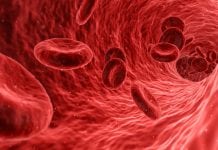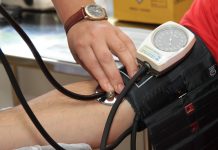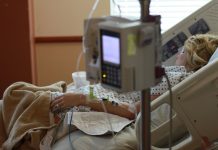personalised medicine Related News
Antibiotic treatment should stop to avoid resistance “tipping point”
New research from the University of Exeter, UK, shows that if antibiotic treatment continues to be used, patients will pass the “tipping point” of...
Innovative tissue analysis: Munich spin-off project receives Helmholtz funding
Tissue analysis is an essential tool for investigating diseases and is a mainstay in the field of diagnostics. Conventionally, tissue is fixed, sliced into...
Epigenetics: advancing diagnostics and accelerating precision medicine
Dr Jason Mellad, chief executive officer at Cambridge Epigenetix, discusses the emerging field of epigenetics-led diagnostics and personalised approaches to medicine.
The exciting and rapidly...
A new type of small-cell lung cancer has been discovered
Researchers from Cold Spring Harbor Laboratory in the USA have discovered a new kind of small-cell lung cancer (SCLC), which is going to help...
Further targeted use of immunotherapy has been discovered
Innovations in immunotherapy are continuing, as researchers have discovered a new method for predicting the likelihood of the treatment’s success.
Immunotherapy, the method in which...
Safe and effective long-term treatment found for neonatal diabetes
Those with neonatal diabetes have an existing long-term therapy which has been shown for the first time to be safe and effective, a global...
Oesophageal cancer can be prevented by taking two medications
Taking a combination of an anti-reflux medication and a low dose of aspirin can prevent oesophageal cancer in people at higher risk, according to...
Antifungal drug shows promise in the treatment of bowel cancer
An antifungal medication that’s commonly used for toenail infections could help eliminate dormant bowel cancer cells, new research suggests.
Research from the Cancer Research UK...
New research could improve current cancer treatments
Combining existing chemotherapy drugs with cancer treatments that cut off blood supply to a tumour could be more effective, new research from the University...
Heart doctors want to provide treatment for acute ischaemic stroke
Heart doctors from the European Society of Cardiology (ESC) Council on Stroke are calling on national authorities for permission to provide acute ischaemic stroke...
Can antidepressants increase the risk of weight gain?
A new study published in The BMJ today has found that long term use of antidepressants is linked to the increase in risk of...
New oral drug can protect cancer patients from venous thromboembolism
Taking one tablet a day could be the key to helping treat cancer patients and protect them from venous thromboembolism (VTE), according to research...
Orphan medicines availability varies between European countries
A new study from the University of Eastern Finland has showed that there are differences in the availability of orphan medicines between the various...
New collaboration announced to maximise benefits of radiation oncology
The European Organisation for the Research and Treatment of Cancer (EORTC) and the European Society for Radiotherapy and Oncology (ESTRO) are joining forces to...
Personalised medicine and breast cancer – an example from Ireland
Dr Luciana Herda and Professor William Gallagher introduce the first Irish Cancer Society Collaborative Cancer Research Centre BREAST-PREDICT: a nationwide effort to make personalised...
Biobanking and personalised medicine
This booklet was written by Dr Christoph Brochhausen-Delius, deputy director at the Institute of Pathology at the University of Regensburg, Germany. It focuses on...
Andriukaitis: big data is shaping health policy in Europe
European Commissioner for Health Vytenis Andriukaitis has explained how big data is shaping health policy in Europe.
Andriukaitis was speaking at this week’s European Alliance...
GlobalData: Companies must provide personalised health solutions
The unmet need for a cross-platform electronic health record (EHR) must be addressed for the healthcare space to move forward and bring with it...
Does drug effectiveness depend on the individual?
Researchers at ETH Zurich, Switzerland, have demonstrated that there is no definitive reason as to why drug effectiveness varies between people, but rather many...
New initiative to individualise Alzheimer’s treatment
A new innovative programme called the ‘Dementia Prevention Initiative’ (DPI) has been developed which aims to abandon generalised methods in favour of individualised Alzheimer’s...





















